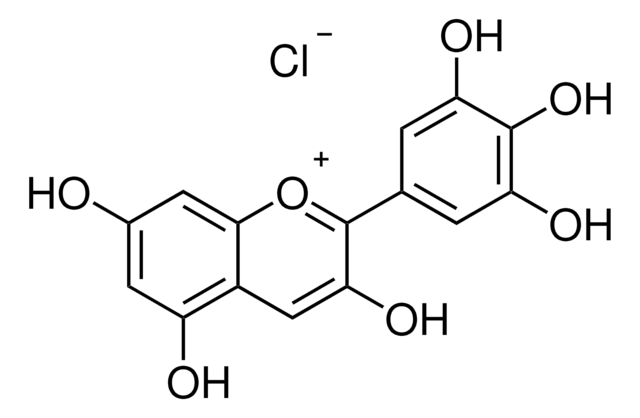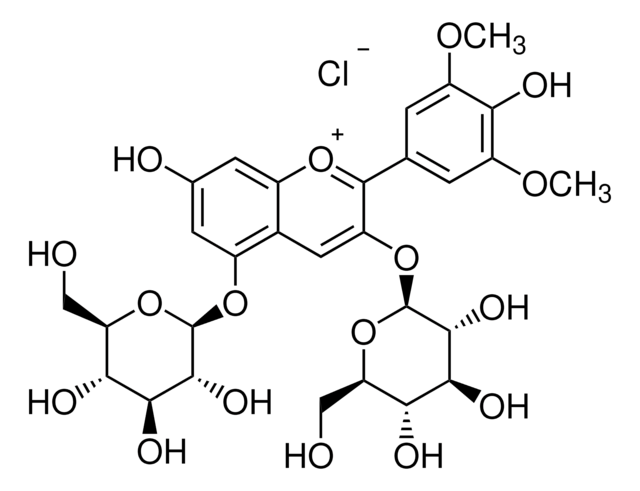901266
Betanin (red beet extract diluted with dextrin)
Synonym(s):
Betanidin 5-β-D-glucopyranoside
Sign Into View Organizational & Contract Pricing
All Photos(3)
About This Item
Empirical Formula (Hill Notation):
C24H26N2O13
Molecular Weight:
550.47
UNSPSC Code:
12352200
NACRES:
NA.22
Recommended Products
form
powder or crystals
Quality Level
General description
Betanin is a red-violet pigment utilized as a natural red colorant in food and pharmaceutical products.
Application
Betanin is a glycosidic, indoline pigment that derives from red beets. Betanin has been used as a building block for chemical synthesis, as a food additive, and in analytical, material, and biological studies. This same product was formerly listed as CDS000584, offered red beet extract diluted with dextrin. Betanin is susceptible to degradation in light and elevated temperatures. When kept dry, it is stable to oxygen.
Storage Class Code
11 - Combustible Solids
WGK
WGK 3
Flash Point(F)
Not applicable
Flash Point(C)
Not applicable
Certificates of Analysis (COA)
Search for Certificates of Analysis (COA) by entering the products Lot/Batch Number. Lot and Batch Numbers can be found on a product’s label following the words ‘Lot’ or ‘Batch’.
Already Own This Product?
Find documentation for the products that you have recently purchased in the Document Library.
Customers Also Viewed
Combining Conventional Organic Solvent Extraction, Ultrasound-Assisted Extraction, and Chromatographic Techniques to Obtain Pure Betanin from Beetroot for Clinical Purposes
Da Silva, et al.
Antioxidants, 12(10), 1823-1823 (2023)
Eliza Łata et al.
Journal of chromatographic science (2019-12-05)
The aim of this study was to develop a thin-layer chromatographic method of qualitative analysis, aiming to confirm the presence of the red beetroot pigments in a given sample. The TLC system developed for this purpose consists of the precoated
Parisa Rahimi et al.
Food & function, 10(12), 8286-8297 (2019-11-15)
This study evaluated the potential impacts of supplementation with betalain-rich extracts of foods on some atherosclerotic risk factors in coronary artery disease patients. During an acute phase, 48 male patients received about 50 mg betalain/betacyanin, and their blood and urine
Our team of scientists has experience in all areas of research including Life Science, Material Science, Chemical Synthesis, Chromatography, Analytical and many others.
Contact Technical Service












